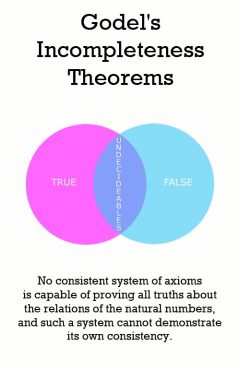Godel's Incompleteness Theorems

Release Date: //
Country of Release:
Length:
MPAA:
Medium: Paradox
Genre:
Release Message: No consistent system of axioms whose theorems can be listed by an "effective procedure" is capable of proving all truths about the relations of the natural numbers, and such a system cannot demonstrate its own consistency. Authored by Kurt Friedrich G odel.
Description: Godel's incompleteness theorems G odel's incompleteness theorems are two theorems of mathematical logic that establish inherent limitations of all but the most trivial axiomatic systems capable of doing arithmetic. The theorems, proven by Kurt G odel in 1931, are important both in mathematical logic and in the philosophy of mathematics. The two results are widely, but not universally, interpreted as showing that Hilbert's program to find a complete and consistent set of axioms for all mathematics is impossible, giving a negative answer to Hilbert's second problem. The first incompleteness theorem states that no consistent system of axioms whose theorems can be listed by an "effective procedure" (e.g., a computer program, but it could be any sort of algorithm) is capable of proving all truths about the relations of the natural numbers (arithmetic). For any such system, there will always be statements about the natural numbers that are true, but that are unprovable within the system. The second incompleteness theorem, an extension of the first, shows that such a system cannot demonstrate its own consistency.